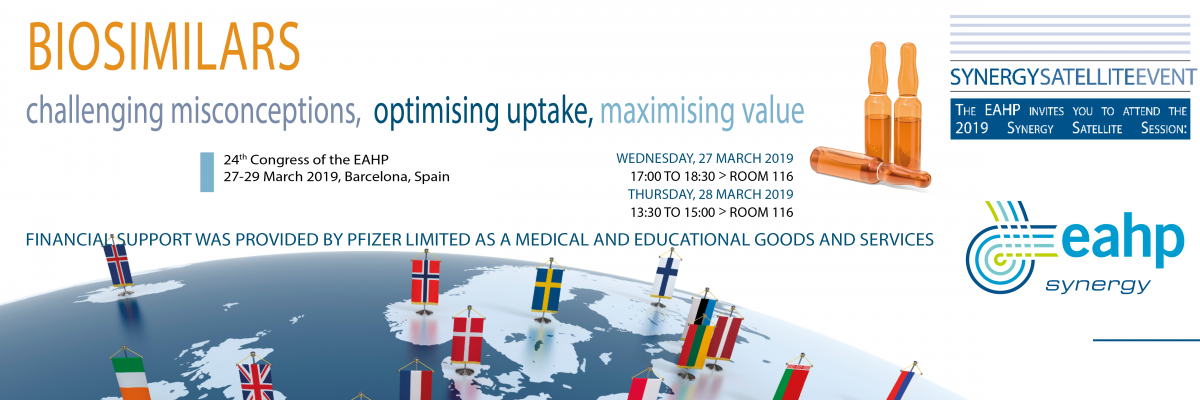
Linked to EAHP Statements
Section 1 – Introductory Statements and Governance: Statements 1.1, 1.6
Section 4 – Clinical Pharmacy Services: Statement 4.1
ACPE UAN: 0475-0000-19-006-L04-P. A knowledge based activity.
Abstract
The use of biological medicines has transformed the lives of many people with serious illnesses. Initially, their use was limited to some extent by their relatively high acquisition cost and, in some conditions, their marginal cost-effectiveness. The advent of biosimilars represents a unique opportunity to improve efficiency in the use of these medicines and release funding to increase the use of biologics and widen the access to these medicines.
Biosimilar use is now widespread in many countries. However, there remains significant variation in the use of biosimilars across Europe and even within different areas of the same country. Drug regulatory authorities such as the EMA require biosimilars to show therapeutic similarity to the original biologic. A biosimilar can only receive a marketing authorisation once it is demonstrated to have no meaningful clinical difference from its originator. The lack of awareness of this requirement may make some clinicians reluctant to use what they see as inferior versions of the biologics. Many clinical studies have been published that show no meaningful difference in the clinical use of biosimilars.
So why is it that countries such as Norway, Denmark and the UK are using biosimilars on a widespread basis, while other countries have almost no use? This synergy satellite will explore the reasons for this variation and show examples of how barriers to their use were overcome in many settings. This required a multifaceted approach to implementation involving education, problem-solving, financial incentives as well as audit and feedback. We will also look ahead to the biosimilars coming to the market in the next few years and discuss the specific challenges these may offer.
Learning objectives
After this Synergy session, participants should be able to:
• recognise the regulatory requirements for biosimilar approval in the EU;
• describe examples of how implementation of biosimilars has been supported in various countries and settings;
• construct their own implementation strategy to increase the uptake of biosimilars in their own country.
Educational need addressed
Use of biosimilars is one of the biggest challenges facing hospital pharmacist to ensure value for money is attained within healthcare. Their use will release funds that can be invested elsewhere within the healthcare setting as well as widen the access to the use of biologics to those where their use was previously deemed not to be cost-effective. This is relevant for all pharmacists involved in hospital pharmacy, particularly those working in therapeutic areas where biologics are used such as oncology, rheumatology, gastroenterology and dermatology.
Keywords: biosimilars, future therapeutic options, monoclonal antibodies, implementation.
























